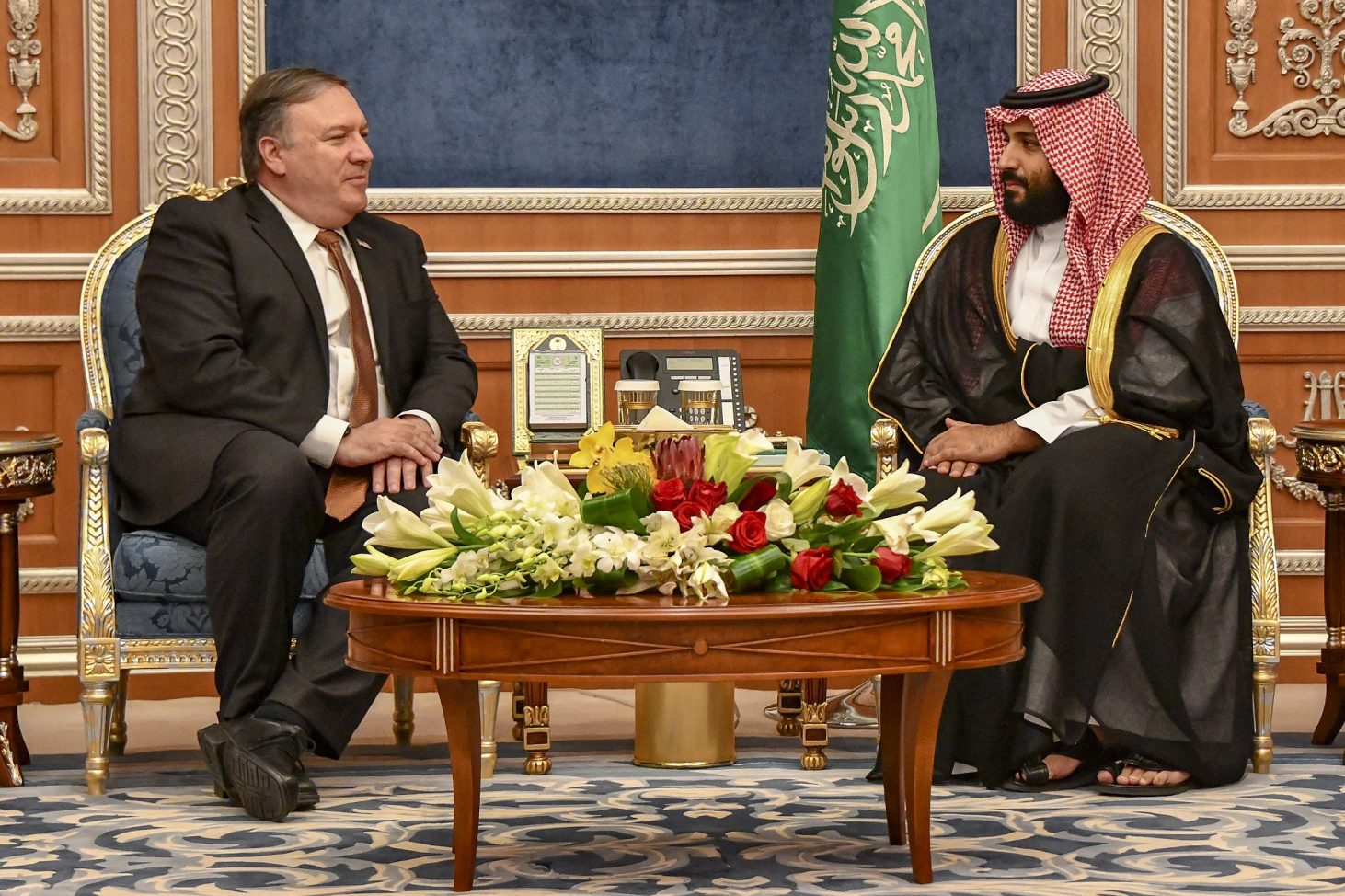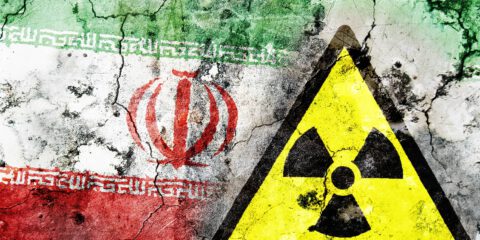The Saudi Crown Prince isn’t a democrat or a strategic savior, but don’t give the evil leaders of Turkey and Iran a victory by weakening US-Saudi ties.
Last December, I warned in this column that Israel should not bear-hug the problematic and weak Saudis, nor fall prey to over-enthusiastic fantasies about Saudi peace overtures to Israel.
Don’t assume, I wrote, that the de facto new leader of Saudi Arabia, the 33-year old Crown Prince Mohammed bin Salman (referred to as MBS), is the answer to Israel’s prayers in facing-down Iran.
It was appropriate to wish MBS success in checking the power of extremist Wahabi Islamist clerics and fixing the broken Saudi economy, and salute him for calling Iran’s Supreme Leader “the new Hitler of the Middle East” and speaking warmly about Israel’s role in the Middle East.
But it was clear that the whole Saudi reform effort was iffy, and that a too-publicly close alliance with Riyadh – even with the dynamic MBS – could backfire on Israel.
For all its legendary wealth, Saudi Arabia is, after all, a failed state with tribal divisions, byzantine oligarchic intra-family enmities, zealously-rigid religious leaders, and a barbaric “justice” system – all of which could coalesce to thwart the reforms that MBS is almost single-handedly seeking to implement.
Furthermore, Saudi past behavior encourages deep skepticism about its true determination or ability to confront Iran. The Saudis have never been adept at turning their gazillions of petrodollars into power on the ground. As a counterweight to Iran, Saudi Arabia has underwhelmed.
Nevertheless, it was worthwhile following MBS’s bold advances with qualified cheer and reveling in the notion that a Saudi-led Sunni coalition against Iran, in which Israel was a clear if silent partner, could emerge.
ALL THIS IS NOW being threatened by a manufactured, hysterical reaction to the killing of Saudi expatriate journalist Jamal Khashoggi. Only the West’s (and Israel’s) worst enemies – the evil leaders of Turkey and Iran – stand to gain from the nonstop, frenzied focus on this brazen Saudi blunder.
Yes, the grisly and clumsy assassination of Khashoggi in Istanbul is an outrage and a gargantuan mistake that stains MBS’s record. But that is no reason to hand Recep Tayyip Erdogan and Ali Khamenei an undeserved victory by weakening the important US-Saudi alliance, and by default undermining US-Saudi-Israeli tacit cooperation.
For Turkish dictator Erdogan, the Saudi stumble is a godsend, and he is cynically milking it for all its worth. It provides a useful distraction from his own economic woes; and it’s a tool to boost his standing in Washington at Riyadh’s expense. He intends to make the US pay for its alliance with Riyadh by demanding a rollback of American support for the Kurdish YPG, and to extract penance from the Saudi kingdom by demanding Saudi investments in Turkey.
Erdogan even dreams of crashing America’s ties to Saudi Arabia, emasculating Saudi leadership of the Sunni world, and, of course, collapsing Saudi intimations of Israel’s positive integration in the Middle East.
Erdogan’s stance is hypocritical and outrageous given two key facts: That he actively undercuts Western interests in the Mideast through close ties to Russia, Iran and Qatar; and that his regime is no less despotic than MBS’s. In fact, there are more journalists (and generals, judges and academics) in jail in Turkey than anywhere else in the world, including China!
And while I’m not suggesting the killing of Khashoggi was justified, let’s not forget that Khashoggi was no great peacemaker. He was a propagandist for the Moslem Brotherhood, an opponent of Saudi friendship with the US (and with Israel), a proponent of alliance with Turkey and Qatar, and a shill for disaffected princes opposed to MBS.
Erdogan has tortured and jailed journalists for far less serious troublemaking. And Erdogan’s state-controlled media – which is obediently feeding a feverish obsession with the Khashoggi story worldwide – regularly spreads lies and hate towards political dissidents and human rights advocates.
IN WASHINGTON, MBS’s epic miscalculation is being exploited politically to question the judgment of President Trump – and more specifically, his son-in-law and senior advisor Jared Kushner, who is said to have shepherded MBS’s rise to prominence in American strategic planning.
The crisis also is being stoked by self-righteous former Obama administration officials who seek to resurrect Obama’s outreach to Iran. They seek to unravel the US-Saudi-Israeli alliance just at the moment when the Trump administration is about to implement a new round of sanctions against Iran. They want to overturn the diplomatic playing field in the Mideast.
Weakening Kushner is a way, too, of mocking Trump’s Israeli-Palestinian peace diplomacy (for which Kushner is also the midwife).
Some Democratic leaders – who disingenuously oppose sanctions against Iran, which is responsible for hundreds of thousands slaughtered in Syria in recent years – are now calling for economic sanctions against the Saudi government unless MBS is sidelined, and even for a cut in US arms sales to Riyadh and the downgrading of intelligence cooperation with Saudi Arabia. These are insane proposals that would reward the bad guys in the region and penalize America itself. Trump should resist such ill-advised suggestions.
The Saudi Crown Prince isn’t a democrat or a strategic savior, but he is the right side of the main fault line in the region and thus is an important partner. He probably needs help in overcoming impulsiveness and could use a coterie of advisors well-educated in proper governance and law, especially as pertains to dealing with Western countries, companies and individuals. Saudi skullduggery would best be recalibrated towards Iran and its agents.
But Trump should not throw MBS under the bus to satisfy the scheming of America’s foreign enemies or the mollify the manipulations of the Trump administration’s domestic rivals.
Published in The Jerusalem Post and Israel Hayom, 26.10.2018
JISS Policy Papers are published through the generosity of the Greg Rosshandler Family.
photo: By U.S. Department of State from United States [Public domain], via Wikimedia Commons








 - בניית אתרים
- בניית אתרים